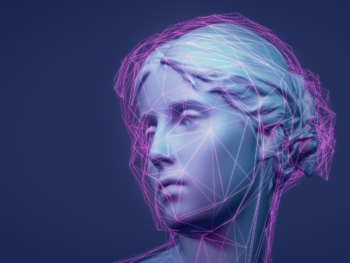It is reported (25 January 2023) that pop mega-star Justin Bieber has sold his rights to music created by him for an estimated $200 million (including rights to the successful hits “Baby” (2010) and “Sorry” (2015)).
The buyer Hipgnosis (a $1 billion venture between Blackstone and the British Hipgnosis Song Management) has acquired Bieber’s rights to his 290-song back catalogue. Hipgnosis, a Public Company who have been trading on the London Stock Exchange since 2018, operate the “Hipgnosis Songs Fund” designed to buy rights in order to build a commercialised catalogue of hit songs. Bieber is one of many to have “cashed in” selling rights to their music. Recent examples also include both Bob Dylan and Bruce Springsteen who have sold their rights to Sony (with Springsteen reportedly receiving $500 million).
Mereck Mercuriadis, founder of Hipgnosis has previously stated that hit songs can be “more valuable than gold or oil”.
As part of the deal Hipgnosis have acquired Bieber’s Artist and Publishing Copyright along with the rights to Master Recordings. The deal means that Hipgnosis will now receive payment every time a song from the 290 strong back catalogue is played in public (including on the radio and through streaming services).
What Is Copyright?
Copyright is a right afforded to authors, artists, or creators over their literary and/or artistic works. The right covers, among other things: books; paintings; sculptures; films; computer programs; drawings; and music. The right is granted to the artist/creator automatically (there is no need to apply) and is an “unregistered” right, meaning there is no list or database of all Copyrights. Artists may use the © symbol to identify work protected by Copyright, but there is no obligation to do so in order to receive the right. Copyright will also, generally, last the life of the artist plus an extra time after death.
If you have Copyright and you wish to make money from it, or the work itself, how can you do so?
“Cashing in” on your Copyright is not a privilege reserved for mega-stars and there are a number of ways all artists can profit from their creative works. The two main ways are assigning (selling) or licencing your rights.
1. Assigning/Selling Your Copyright
This is the avenue taken by Bieber and other artists recently and means completely selling your rights in the works to another individual. In an assignation of ownership you agree (for a fee) to give up all rights in your music including: marking the music as your own work; using the music without the permission of the new owner; further selling the rights; and/or receiving money from the use of the work.
Selling the right can be beneficial to artists who no longer wish to use their works and generally attracts a higher up-front fee, however, means that all rights are lost and allows the “assignee” to use the Copyright in whichever way they wish (including potentially further selling the right).
A caveat to a total assignation of Copyright is the retention of “moral rights” belonging to an original artist, these cannot be assigned or transferred. Moral rights cover the right of attribution; right to object to derogatory treatment of the work; right to object to false attribution and right to privacy of certain photographs and films.
For example, where lyrics are contained within music the original artist retains a right to be identified as the author and the right to object to derogatory treatment of the work. This can be an important right retained by an artist to protect any distinctive artwork or text, depending on the terms of an assignation deal. The rights can be waived in any assignation/sale deal and assignees/purchasers may insist on a waiver of rights, however, consideration should be given to waiving such rights and the effect such a waiver will have on the work itself.
2. Licencing Your Copyright
If you wish to keep your Copyright, but commercialise the works for income, a licence should be considered rather than selling the rights.
A common example of licencing rights in music is where artists make deals with distributors (for example streaming services like Spotify, Apple Music and Amazon Music) so the distributors can use the music protected by Copyright on their platform (without the Copyright itself) and, in return, the artist with the right will receive a fee (Royalties) (this could be upfront money, a flat monthly fee, or (more commonly) a fee per stream or play).
The benefit of a licence is the retention of the Copyright for the artist and the ability to manage the licence relationship, including the freedom to revoke the rights afforded to the “licencee” if necessary. When compared to assignation rights (which are irrevocable once a deal has been finalised), a licence can provide an artist with more control and the ability to manage their right. Licences will, however, attract a lower fee upfront, instead giving an artist a more long-term income stream.
Both the sale and licencing of Copyright have their benefits, providing artists with strong commercial opportunities and income from their creative works.
If you would like to discuss selling or licencing your Copyright, or you would like to discuss any other matters surrounding creative works, please get in touch with the BTO BeCreative Team on 0131 222 2939 or email: becreative@bto.co.uk.
Paul Motion, Partner: prm@bto.co.uk / 0131 222 2932
Jamie Stewart, Trainee Solicitor: jgs@bto.co.uk / 0131 222 2939









 Buyer Beware – Copyright and NFTs
Buyer Beware – Copyright and NFTs
Leave a Reply